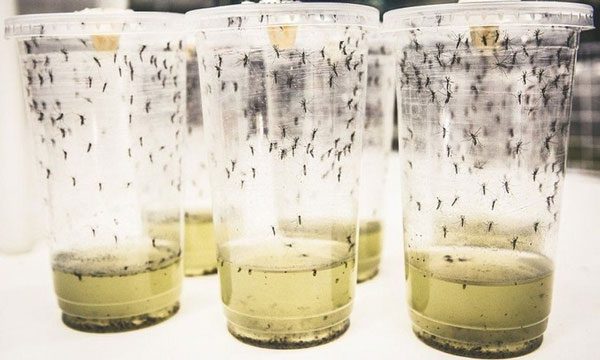Scientists are using mosquitoes infected with Wolbachia bacteria to reduce their ability to spread dengue fever.

Mosquitoes carrying Wolbachia bacteria. Photo: World Mosquito Program.
The experiment is taking place in Yogyakarta, Indonesia, and is being expanded with hopes of eradicating the virus. The research team from the World Mosquito Program states that this could be a solution to the dengue virus, which has spread worldwide. In 1970, only 9 countries faced severe dengue outbreaks. Currently, the number of infections each year has reached 400 million.
Dr. Katie Anders, a member of the research team, describes Wolbachia bacteria as a “natural miracle.” Wolbachia does not harm mosquitoes but concentrates in areas that the dengue virus needs to invade the mosquito’s body. This bacteria competes for resources and makes it much harder for the virus to replicate, thus reducing the likelihood of mosquitoes transmitting the disease when they bite.
The experiment utilized 5 million eggs from mosquitoes infected with Wolbachia. The eggs were placed in buckets of water throughout the city, with releases occurring every two weeks. The process of establishing a population of Wolbachia-infected mosquitoes lasted 9 months. Yogyakarta was divided into 24 areas, and mosquitoes carrying Wolbachia were only released in 12 of those areas. According to the trial results published in the New England Journal of Medicine, the number of infections in the city decreased by 77%, and hospitalizations dropped by 86%.
The technique was so successful that mosquitoes were released throughout the city. The project is expanding into surrounding areas with the goal of eradicating dengue fever in the region. “These results are groundbreaking. We believe this technique will have an even greater impact when implemented in large cities around the world, where dengue fever has become a massive public health issue,” Anders shared.
Wolbachia is also particularly easy to manipulate and can alter the reproductive capabilities of the host to ensure they are passed on to the next generation of mosquitoes. This means that once Wolbachia infiltrates a mosquito’s body, it will remain for a long time and continue to prevent the transmission of dengue fever.
The method of using Wolbachia bacteria has many advantages over other control methods such as pesticides or the release of sterilized male mosquitoes. Research on disease modeling also predicts that Wolbachia could completely halt the dengue fever epidemic.





















































